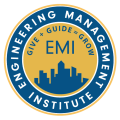“Leaders instill in their people a hope for success and a belief in themselves. Positive leaders empower people to accomplish their goals.”
~ Unknown
Engineering is a profession that requires a combination of technical skills and leadership skills. Engineers need to possess excellent problem-solving skills, attention to detail, and analytical skills to develop innovative solutions. However, in order to succeed in the workplace and advance in their careers, engineers must also possess strong leadership skills. In this blog, we will discuss the top leadership skills every engineer needs to succeed in the workplace.
Communication Skills
Effective communication is the foundation of successful leadership. Engineers must be able to clearly communicate their ideas and instructions to their team members, clients, and stakeholders. They must also be able to actively listen to feedback and input from others. Strong communication skills also help engineers to build relationships with their team members, establish trust, and create a positive workplace culture.
Team Building Skills
Engineers work collaboratively with other professionals in a variety of settings. The ability to build and manage teams is essential for successful leadership. Engineers must be able to identify the strengths and weaknesses of their team members, delegate tasks effectively, and motivate their team to achieve shared goals.
Problem-Solving Skills
Problem-solving is a core competency of engineering, but it is also an important leadership skill. Effective leaders are able to identify problems, analyze data, and develop creative solutions to complex challenges. They also encourage their team members to think critically and offer innovative solutions.
Emotional Intelligence
Emotional intelligence is the ability to recognize and manage your own emotions, as well as understand and influence the emotions of others. Engineers with strong emotional intelligence are able to communicate effectively, build relationships, and motivate their team members. They are also able to manage conflicts and promote a positive workplace culture.
Strategic Thinking
Strategic thinking involves the ability to see the big picture and develop long-term goals and plans. Successful leaders are able to align their team’s goals with the company’s overall strategy and work towards achieving those objectives.
In conclusion, engineers who possess strong leadership skills are more likely to succeed in the workplace and advance in their careers. Effective communication, team building, problem-solving, emotional intelligence, and strategic thinking are essential skills for engineering leaders. By developing these skills, engineers can become more effective leaders and contribute to the success of their teams and organizations.
About the Author
Tiffani Teachey is a Senior Mechanical Engineer, Science, Technology, Engineering, and Math (STEM) advocate, TEDx international speaker, and international best-selling author of the children’s book “What Can I Be? STEM Careers from A to Z” and two women empowerment books. She is the host of the Read It Right Radio Show on iHEART Radio via WDRBmedia. Tiffani is the owner of Thrive Edge Publishing and owner/publishing consultant of Inspired Authors Publishing. She holds a Bachelor of Science degree in Mechanical Engineering, as well as a Masters of Science degree in Engineering Management, both from The University of North Carolina at Charlotte. She is currently a Leadership Studies Ph.D. student at North Carolina Agricultural and Technical State University.
As an engineer with more than 18 years of experience, Tiffani has a passion for inspiring the next generation to engage in STEM careers. She was born and raised in Winston-Salem, North Carolina, enjoys traveling and being a youth mentor. For more about Tiffani, visit her website at www.TiffaniTeachey.com.
We would love to hear any questions you might have or stories you might share about leadership skills that you think every engineer needs to succeed in the workplace.
Please leave your comments, feedback or questions in the section below.








